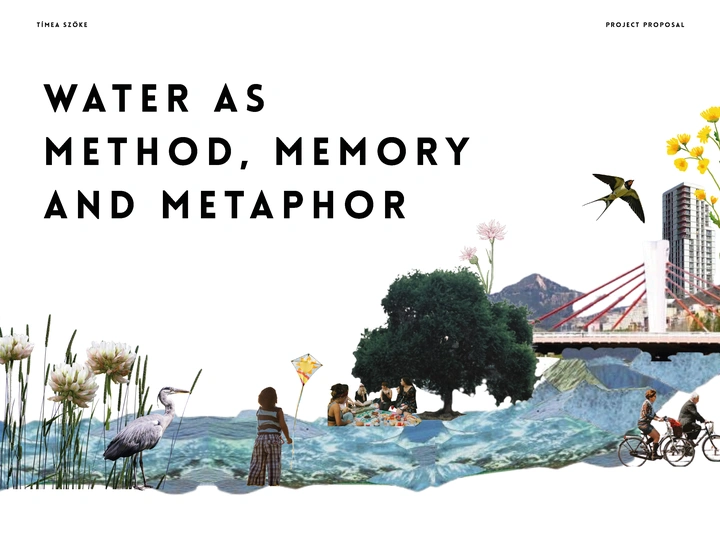Regenerative Placemaking through Water

I am Tímea Szőke, an urban researcher, facilitator, and artist exploring the intersections of place, body, and community through regenerative and embodied practices.
As a PhD Researcher in the School of Architecture at the International University of Catalonia, based in Barcelona. I’m exploring regenerative placemaking that nurtures reciprocal relationships between people and places. My focus is on embodied, sensory, and collective experiences that restore social and ecological resilience and foster community well-being.
Over the past decade, I’ve worked across Europe leading place-based projects that blend spatial practice, artistic intervention, and social engagement. Between 2018 - 2023, I worked at the Hungarian Contemporary Architecture Centre (KÉK) in Budapest, and between 2020 and 2023, I co-directed the organisation’s programme and partnerships. I was also the project leader of Budapest100, an award-winning architectural-cultural festival, a celebration of communities and cultural heritage. As president of Ziggurat Project, an interdisciplinary art collective, I produced site-specific performances and installations exploring urban memory and access.
My current practice includes hosting the Placemaking Impact Field in the Bosch Alumni Network, bringing together global spatial practitioners. Earlier this year, I co-initiated the Primavera R festival in Barcelona, bringing together local climate action initiatives, and as a result, we co-funded the Urban Resilience Lab, where we work on building the local climate-conscious ecosystem. I’m the co-founder and an active creator and facilitator at EMPOWERmental, which is an art initiative that uses somatic and art-based tools to foster well-being.
I have an MA in Social Design and a BA in Liberal Arts Art History, and I have different certifications in regenerative design (Power of Place) and systems thinking (Systems Change Academy). I’m fluent in Hungarian, English, and Spanish, and understand basic Serbian.
This project is a situated, regenerative placemaking process where the river becomes collaborator, method, and memory. My practice is rooted in over a decade of work at the intersection of urbanism, art, and community. It draws from ecofeminist understandings of interdependence and from regenerative design’s cyclical, place-based processes. Placemaking, for me, is about tending to place and co-creating (temporary) commons. Through walking, sensing, gathering, and co-creation, I invite others to attune to what lies beneath the surface to imagine new ways of being in right relationship with place and each other.
This proposal focuses on the banks of the Besòs River in Barcelona, a place long treated as a sacrifice zone, raising the question of how a fragmented river can become common again, felt, shared, and protected.
The process: Tending the Waters
Inspired by the cyclical nature of water, the process unfolds in four fluid phases:
Living with the Place
A temporary riverside structure becomes a space of presence and resistance, where simple acts like sitting in stillness, talking, and sharing food invite the community to sense the river’s layered memory.
Collective Weaving
Through somatic dérives and walks, participants gather sensations, stories, and traces, listening through bodies to uncover the Besòs' bio-cultural uniqueness.
Gathering by the River
Site-responsive interventions like murals, gardens, or closing a bridge in celebration reclaim the riverside as commons, transforming not only space but the social fabric around it.
Confluence of Futures
The process culminates in shared reflection and a growing library of memory and possibility, holding space for reimagining how we live in right relation with water, place, and each other.
This idea is rooted in my long-term fascination with water and public space, and I hope to evolve it into a transferable methodology adaptable across geographies.